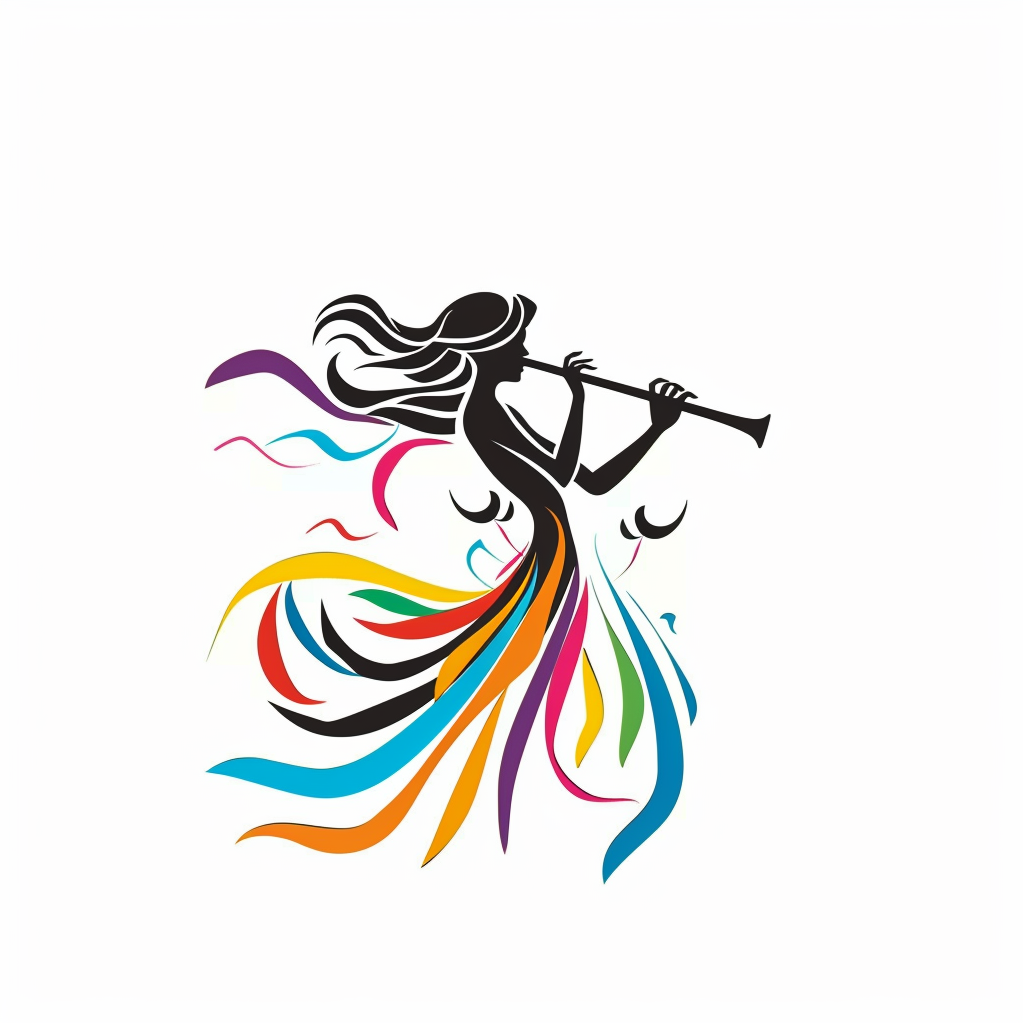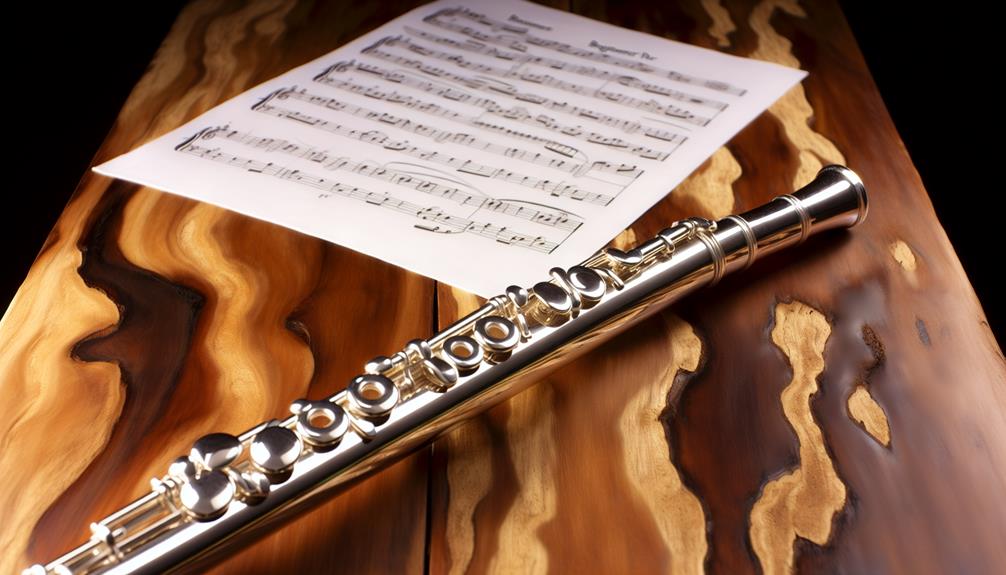Choosing the right flute as a beginner can be a crucial decision. The variety of options available can be overwhelming, making it essential to understand the key factors to consider. From material and key configuration to playability and durability, each aspect plays a role in determining the best fit for a novice flutist.
By exploring the different types of beginner flutes, one can better grasp the nuances that set them apart and ultimately make an informed choice. Stay tuned to unravel the mysteries of selecting the ideal flute for beginners.
Key Takeaways
- Choose a closed-hole C flute for beginners for easy fingering.
- Look for a durable flute with smooth playability and responsive keys.
- Consider reputable brands like Yamaha or Mendini for quality and maintenance services.
- Regular maintenance, proper storage, and gentle care ensure longevity and optimal performance.
Factors to Consider When Choosing
When selecting a basic flute for beginners, it is crucial to consider various factors that will impact the learning experience and overall performance. One of the primary considerations is the material of the flute. Flutes can be made from materials such as nickel silver, silver-plated, or even solid silver. Beginners often start with a nickel silver flute due to its durability and affordability.
Additionally, the key mechanism is an essential factor to contemplate. For beginners, a flute with closed-hole keys might be more suitable as it provides better support for finger placement and technique development.
Moreover, the size and weight of the flute should not be overlooked. Beginners, especially younger players, may find a lightweight flute more comfortable to hold for extended practice sessions. The ease of playability is also crucial. A beginner flute should have a smooth and responsive mechanism to facilitate the learning process and prevent frustration.
Lastly, considering the reputation of the brand and the availability of maintenance services can ensure a smoother journey into the world of flute playing.
Different Types of Beginner Flutes
Considering the varied options available in the market, novice flute players can explore different types of beginner flutes to find the most suitable instrument for their learning journey. When starting on this musical adventure, beginners may encounter several types of flutes tailored to their needs:
- Standard C Flute: The most common choice for beginners, offering a balanced tone and ease of playing.
- Closed Hole Flute: Suitable for young players or those with smaller hands, providing a simpler fingering system.
- Open Hole Flute: Offers more advanced players the ability to produce a broader range of tones and dynamics.
- Plastic Flute: A durable and cost-effective option for beginners that is also resistant to temperature and humidity changes.
- Curved Head Flute: Ideal for young children or players with arm length limitations, allowing for better posture while playing.
Exploring these different types of beginner flutes can help aspiring musicians find the perfect instrument to begin their flute-playing journey.
Features to Look for in a Beginner Flute
Exploring essential characteristics in a beginner flute is crucial for selecting an instrument that facilitates a smooth and enjoyable learning experience. When choosing a beginner flute, several features should be considered to ensure optimal playability and comfort for the player.
One important feature to look for is a straight headjoint, which makes it easier for beginners to produce clear tones and develop proper embouchure. Additionally, closed-hole keys are recommended for novice players as they provide better support for finger placement and technique development.
A durable construction is also key, as beginner flutists may inadvertently subject their instruments to more wear and tear. Furthermore, a responsive mechanism that allows for easy key action is essential for fluid playing and progression in skill.
Lastly, a quality mouthpiece can significantly impact sound production and overall playing experience, making it a crucial element to consider when selecting a beginner flute. By prioritizing these features, aspiring flutists can embark on their musical journey with a reliable and suitable instrument.
Budget-Friendly Beginner Flute Options
For individuals seeking cost-effective options in acquiring a beginner flute, there are several budget-friendly choices available that maintain essential features conducive to learning and skill development.
When looking for a beginner flute that fits your budget, consider the following options:
- Yamaha YFL-222: Known for its durability and quality sound production, this flute is a popular choice among beginners.
- Mendini by Cecilio: This brand offers affordable flutes that are suitable for beginners and come in various colors to suit your style.
- Jean Paul USA FL-220: A reliable option with a smooth key mechanism, ideal for those starting their flute journey.
- Glory Closed Hole C Flute: This flute is budget-friendly and perfect for beginners due to its easy playability.
- Eastar EFL-1: An entry-level flute that offers good sound quality at an affordable price point.
These budget-friendly beginner flute options provide a solid foundation for learning and can help you embark on your musical journey without breaking the bank.
Tips for Maintaining Your Beginner Flute
Effective maintenance of your beginner flute is crucial to ensure optimal performance and longevity of the instrument. Regular care and attention to your flute can help prevent costly repairs and keep it playing beautifully. Here are some essential tips for maintaining your beginner flute:
| Maintenance Tip | Description |
|---|---|
| Clean your flute regularly | Use a soft, dry cloth to wipe down the exterior of your flute after each practice session. |
| Check for loose screws | Periodically inspect your flute for any loose screws and tighten them gently if necessary. |
| Store your flute properly | Always keep your flute in its case when not in use to protect it from dust, moisture, and damage. |
Frequently Asked Questions
Can I Start Learning the Flute Without Any Prior Music Experience?
Starting to learn the flute without prior music experience is indeed possible. With dedication, patience, and guidance from a qualified instructor, you can develop your skills and enjoy the journey of exploring music.
What Are Some Common Challenges Beginners Face When Starting to Play the Flute?
Common challenges beginners face when starting to play the flute include developing proper embouchure, breath control, finger placement, and learning to read music. Consistent practice, guidance from a qualified instructor, and patience are key to overcoming these obstacles.
Are There Specific Exercises or Techniques to Improve Finger Dexterity for Flute Playing?
Seeking to enhance finger dexterity in flute playing is essential for mastering the instrument. Specific exercises like scales, arpeggios, and trills can help improve agility and precision, ensuring smoother and more fluid performances.
How Long Does It Typically Take for a Beginner to Progress to More Advanced Flute Playing?
Progressing to more advanced flute playing depends on individual dedication, practice consistency, and natural musical aptitude. Typically, beginners may take several months to a few years to advance, with regular lessons and focused practice.
What Resources Are Available for Beginners to Learn How to Read Sheet Music for the Flute?
When starting to learn how to read sheet music for the flute, beginners have a variety of resources available, such as online tutorials, music books specifically for beginners, private lessons with a music teacher, and interactive apps designed to teach music notation.
Conclusion
In conclusion, when choosing a beginner flute, it is important to consider factors such as material, key system, and brand reputation.
Yamaha offers a popular beginner flute model, known for its durability and easy playability.
By selecting a flute that suits your needs and budget, you can embark on your musical journey with confidence and enjoyment.

